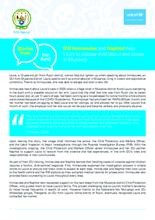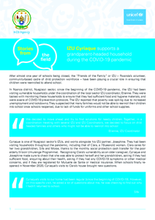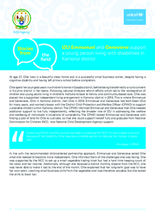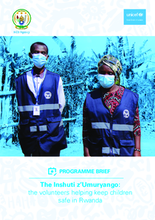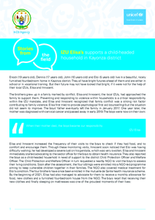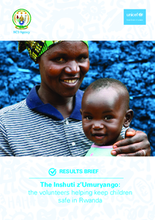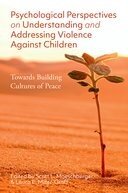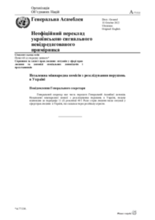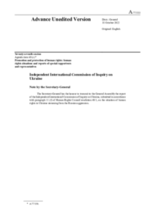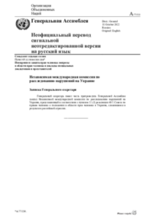Displaying 141 - 150 of 1028
This case study details how IZU Immaculee and Naphtal help Laura to escape child labour and abuse in Musanze, Rwanda.
In this case study IZU Cyriaque supports a grandparent-headed household during the COVID-19 pandemic.
This case study details,how IZU Emmanuel and Genevieve supported a young person living with disabilities in Kamonyi district, Rwanda.
This brief outlines the background to, rationale for, and objectives of the ‘Inshuti z’Umuryango’ (IZU) or ‘Friends of the Family’ programme in relation to Rwanda’s wider child protection strategy.
This case study details how IZU Elisa supported a child-headed household in Kayonza district, Rwanda.
This brief presents the results of several assessments of the ‘Friends of the Family’ or ‘Inshuti z’Umuryango’ (IZU) initiative in Rwanda. IZU is a frontline volunteer cadre introduced in 2016 as part of Rwanda's national child protection system strengthening and care reform efforts.
This chapter in the book, "Psychological Perspectives on Understanding and Addressing Violence Against Children: Towards Building Cultures of Peace", explores how violence impacts children in various types of alternative care from larger scale institutions such as orphanages to family-based care models like foster care. The book explores the topic from a global perspective.
У цьому звіті Незалежна міжнародна слідча комісія по Україні посилатиметься на висновки щодо подій наприкінці лютого та в березні 2022 року в чотирьох областях: Київській, Чернігівській, Харківській та Сумській, відповідно до вимог резолюції S-34/1 Ради з прав людини.
In this report, the Independent International Commission of Inquiry on Ukraine will refer to findings about events during late February and March 2022 in the four regions of Kyiv, Chernihiv, Kharkiv, and Sumy, as requested by Human Rights Council resolution S-34/1.
В этом отчете Независимая международная комиссия по расследованию событий в Украине будет ссылаться на выводы о событиях в конце февраля и марте 2022 года в четырех областях: Киевской, Черниговской, Харьковской и Сумской, как того требует резолюция Совета по правам человека S-34/1.

